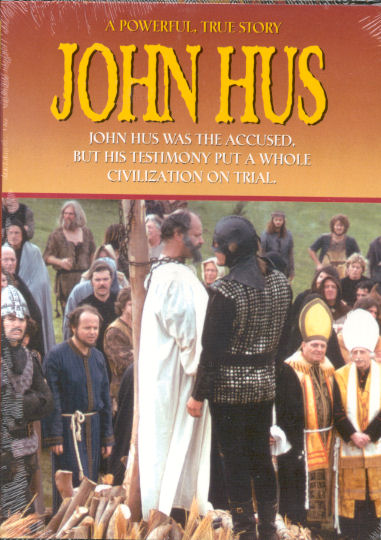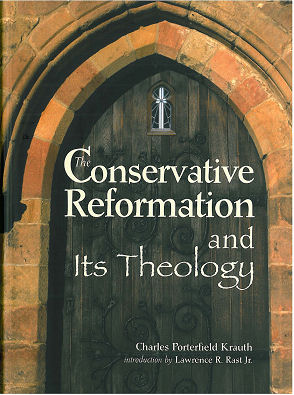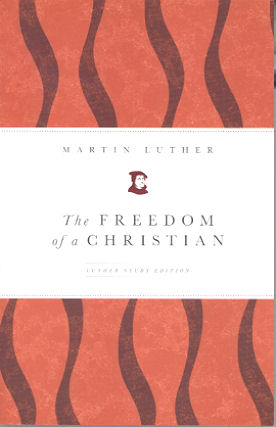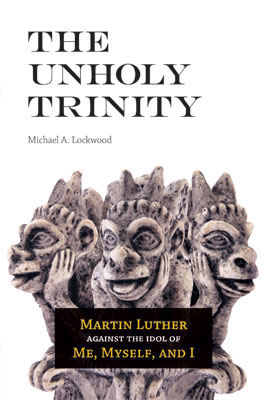Throughout 2017, we’ll be highlighting Reformation resources in a weekly book review every Wednesday.We are inviting pastors and lay people to submit reviews throughout the year. Contact our office for more details.
To view a list of the resources available to be reviewed, click here.
June 7, 2017
John Hus – DVD
Review by Pr. Jim Rasmussen

This DVD mainly focused on the last eight months of the life of John Hus. The King of Bohemia, Sigismund, gave Hus a promise of safe conduct to come to Constance to appear before the Council of Constance and prove his teachings were biblical. He was imprisoned in the dungeon of the Dominican Monastery in Constance on December 6, 1414. The accusations that were leveled against Hus were never proved! The few that were mentioned from the list included that he translated Scripture into the common tongue, that he preached in the common tongue, that he said salvation was free and could not be bought, and that he appealed directly to God! This council was a complete setup. Hus was never able to defend his preaching, writing, or teachings. He asked a number of times for the religious leaders of the council to show him his errors from the Scriptures. That request was never even acknowledged.
On July 6, 1415, John Hus was burned at the stake. He was asked a few days before this by a friend, “Bend, will you?” John never bent! The last sentence he spoke was “Into Thy hands, O Lord, do I commit my spirit.” As the fire was lit, be began to sing hymns until he could no longer utter a sound.
This DVD reminded me of Jesus trial’ before the religious leader as they condemned Jesus to be crucified. The religious leaders accusing John Hus also condemned him and would not even consider the Scriptures when he asked them to. They were very self-righteous. But John was willing to die for the true teaching of the Word of God.
It is easy for man to focus on traditions and traditional teaching rather than digging into the Word to build our theology to live by. John Hus was a man like Martin Luther who stood firmly on the Word of God.
It was interesting that the religious leaders said that John Hus “was not a true speaker of the gospel but a disciple of arch heretic Wycliffe,” who years earlier had boldly proclaimed the authority of the Scriptures and translated them into English. My prayer is that I will stand on the Word of God as Wycliffe and Hus and Luther did.
Pr. Jim RasmussenAFLC Director of EvangelismPlymouth, MN
Order your copy here: Ambassador Publications Online Store
Other DVDs are also available for purchase and can be borrowed from our Lending Library.
Also Available:

Order Reformation Overview DVD here.

Order John Wycliffe: The Morning Star DVD here.

Order Truth Prevails: The Undying Faith of Jan Hus DVD here.
June 14, 2017
The Conservative Reformation and Its Theology
Review by Pr. Dennis Norby

The Conservative Reformation and Its Theology written by Charles Porterfield Krauth is an academic and well-reasoned defense of the Conservative Reformation. It is the culmination of many years of study by its author; his magnum opus. The title, “Conservative Reformation,” is used to distinguish the Lutheran teaching from other groups which were not as concerned about holding on to the teaching of the historic Church. Krauth presents the teaching of the Church Fathers, as Luther did, showing how the Lutheran teachings are that which has always been taught in faithful churches through the generations. The book is also historical as it describes Martin Luther and his great work in translating the Bible into German. It was amazing to read the many quotes given by Luther’s theological opponents that praised Luther’s life and character.
The heart of this book is the treatment of the teachings concerning original sin, the person of Christ, Baptism, and the Lord’s Supper. Krauth writes as one who thoroughly understands the teachings of those for and against the Lutheran Confessions. I would recommend this book as a reference to those who might get into a discussion about any of these topics.
This book is massive and not likely a book many would desire to sit down and read straight through. However, as a defense of the doctrine of the Lutheran Church, it is a valuable work. Krauth wrote in the 19th century, and we might begin to think that what he said would be old and stale. But the accusations made against the Lutheran Church in the 16th century and the 19th century are being repackaged in the 21st century. The teachers in the Lutheran Church desired to present the whole truth to the people of their day. They worked to pass on the faith once for all delivered to the saints (Jude 3).
I was encouraged to see that such a well-reasoned and thorough book has been presented to the people of our day through its reprinting. It makes clear that the Reformation and the presentation of what Lutherans believe, teach, and confess was not just what happened to be on their minds at the time. It was a presentation of a thorough and prayerful study of the Scriptures, with a consideration of arguments against it from the Roman Church as well as other factions, including those headed by individuals like Calvin and Zwingli. Those arguments continue to make the rounds today, which makes this book a valuable tool for us as we defend the teachings of Scripture.
Pr. Dennis NorbyAFLC Board of Publications and Parish EducationPlymouth, MN
Order your copy here: Ambassador Publications Online Store
Also Available:

Order Called to Believe, Teach, and Confess: An Introduction to Doctrinal Theology here.

Order Reformation: A History here.

Order A Theology to Live By: The Practical Luther for the Practicing Christian here.
June 21, 2017
The Freedom of a Christian: Luther Study Edition
Review by Pr. Jarrod Hylden

In 1520 Martin Luther wrote a treatise entitled “On the Freedom of a Christian.” This work is regarded as one of the three great works of 1520 which outlined Luther’s program for the reformation. This particular treatise describes the whole of the Christian life. One of the biggest critiques against Luther’s teaching was that if people are justified by faith apart from works then people won’t do good works because there is no purpose for them. Against this critique, Luther sets forth the relationship between faith and works. He teaches the proper place for good works and the way that they should be regarded. He introduces this concept by setting forth two paradoxical statements:
A Christian is a perfectly free lord of all, subject to none.
A Christian is a perfectly dutiful servant of all, subject to all.
On the one hand, the Christian is a “perfectly free lord of all, subject to none.” That is, through faith in Christ, he has received everything. Christ the Bridegroom has taken all his sin and endured all of God’s wrath on his behalf. Christ has lavishly bestowed upon the Christian his own victory over sin, death, and the devil, as well as his own perfect righteousness. Thus, through faith, the Christian is perfectly free. No one, be it Pope or bishop, and nothing, whether law or ceremony, can demand anything from him. “For Christ is the end of the law for righteousness to everyone who believes” (Romans 10:4). Thus, having received everything from Christ, the Christian is forgiven, free, and in need of nothing. He certainly doesn’t need the supposed righteousness gained from works and keeping the law.
On the other hand, “A Christian is a perfectly dutiful servant of all, subject to all.” Having received righteousness and freedom as a gift from Christ, now the Christian seeks to follow the example of Christ, who gave up his freedom to serve others. He doesn’t do this in order to gain righteousness, for this he already has through faith, but he does it out of gratitude to God, out of a desire to please God, out of a concern to curb his flesh, and out of love for his neighbor. The Christian relates to God through faith in Christ. On the other hand, he relates to his fellowmen here on earth through love. Thus, Luther does not reject good works, but only the teaching that we should trust in them to achieve righteousness.
I will close with Luther’s own description of the Christian. He ought to think: “Although I am an unworthy and condemned man, my God has given me in Christ all the riches of righteousness and salvation without any merit on my part, out of pure, free mercy, so that from now on I need nothing except faith which believes that this is true. Why should I not therefore freely, joyfully, with all my heart, and with an eager will do all things which I know are pleasing and acceptable to such a Father who has overwhelmed me with his inestimable riches? I will therefore give myself as a Christ to my neighbor, just as Christ offered himself to me; I will do nothing in this life except what I see is necessary, profitable, and salutary to my neighbor, since through faith I have an abundance of all good things in Christ.”
Pr. Jarrod HyldenSkrefsrud Lutheran ChurchBeresford, SD
Order your copy here: Ambassador Publications Online Store
NOTE: “The Freedom of a Christian,” also known as “On Christian Liberty,” is a treatise by Martin Luther excerpted from Volume 31 of Luther’s Works. The edition used by the reviewer is The Freedom of a Christian: Luther Study Edition, which includes an informative introduction to Luther and the context of his writing, as well as helpful explanatory notes, a glossary of key terms, a map of Reformation Europe, and several illustrations. Two other editions are available from Ambassador Publications: The Freedom of a Christian: 1520, The Annotated Luther Study Edition edited by Timothy Wengert is part of a new series containing helpful introductions, annotations, illustrations, and notes to shed light on Luther’s context and to interpret his writings for today. On Christian Liberty is a simple, inexpensive, pocket-sized book without all the additions.
Also Available:

Order The Freedom of a Christian, 1520: Annotated Luther Study Edition here.

Order On Christian Liberty here.

Order Treatise on Good Works, 1520: Annotated Luther Study Edition here.
June 28, 2017
The Unholy Trinity: Martin Luther Against the Idol of Me, Myself, and I
Review by Pr. Brett Boe

The world has changed drastically in the five hundred years since the posting of the Ninety-Five Theses by Luther. Yet, in some ways, the more things have changed, the more they have stayed the same. One seemingly “new” phenomenon has been the rise of interest in and compassion for those who struggle with mental health issues. It is not widely known that Luther counseled people who today would be given a psychiatric diagnosis. Luther once advised a man who believed himself to be a rooster. How did Luther approach individuals with problems such as this? How did Luther speak and write to people with other more “normal” struggles? The book The Unholy Trinity: Martin Luther Against the Idol of Me, Myself, and I by Michael Lockwood seeks to answer Luther’s approach to spiritual diagnosis of souls.
In his own words, the author expresses his purpose for the book: “The main goal of this study has been to systematize Luther’s thoughts on idolatry so they can be used as a tool for spiritual diagnosis. This can help us to focus our application of Law and Gospel in our preaching, teaching, evangelism, and pastoral care.” Through careful analysis of quotes from Luther’s writings, Lockwood accomplishes his goal. Luther wrote many letters back and forth with friends and acquaintances in order to guide them in their spiritual struggles. In Luther’s mind, struggles often found their root in idolatry. For Luther, the idea of idolatry provided a structure from which to assess the problem, apply the Law and/or Gospel, and watch God work through His Word in the life of the struggling person he sought to help. The author notes three main features of idolatry: “misplaced fear, misplaced love, and misplaced trust.” Many of the people that sought Luther’s help were comforted in one way or another. Simply put, Luther was a master pastor, caring for souls in a compassionate, firm, and gracious manner. He was very effective in applying the needed Word from Scripture to counteract the idol that expressed itself in the struggler.
I highly recommend this resource, especially for those interested in sharpening their skills in providing soul care to others. The way Luther counseled five hundred years ago is just as relevant today. Lockwood comments, “Luther can help us to uncover multiple idols in the lives of people today. This can help us to proclaim Law and Gospel in such a way that it addresses the real issues in every dimension of people’s lives.”
Pr. Brett BoeKing of Glory Lutheran ChurchShakopee, MN
Order your copy here: Ambassador Publications Online Store
Also Available:

Order Luther and the Stories of God: Biblical Narratives as a Foundation for Christian Living here.

Order Martin Luther’s Catechisms: Forming the Faith here.

Order Why the Reformation Still Matters here.
